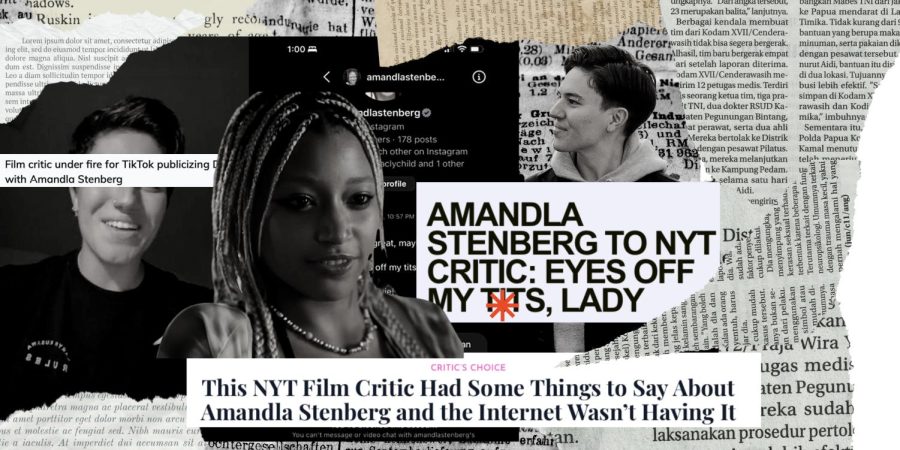Critics should handle criticism better
September 29, 2022
In August, actor Amandla Stenberg was at the center of controversy after Lena Wilson, The New York Times film reviewer, publicly posted direct messages between them. In the messages, Stenberg responds to part of the review Wilson wrote for the film “Bodies Bodies Bodies” in which she comments on Stenberg’s and her castmates’ breasts. Wilson said, “The only thing that really sets ‘Bodies Bodies Bodies’ apart is its place in the film production company A24, where it doubles as a 95-minute advertisement for cleavage and Charli XCX’s latest single.”
Wilson’s comments on their bodies should have been left out of the review. The comments were misogynistic and unnecessary. As Wilson began to receive backlash, she defended herself via Twitter, posting, “Do you think she Instagram DM’d Alison Wilmore, Justin Chang, and Anthony Lane like this or…” and “always weird when the homophobia is coming from inside the house, but this is something.”
Wilson also posted a TikTok saying, “I was a genuinely huge fan of hers, but I’m posting this because I don’t want this person who has more social power than me to think that it’s [expletive deleted] OK to do something like this.”
While I do understand the power disparities between Stenberg and Wilson, the messages were not a public matter until Wilson decided to post them for the world to see. It would have been different if Stenberg got on her social media platforms and called Wilson out – instead she reached out privately.
Wilson’s response is a complete overaction and paints Stenberg as an aggressive homophobe when Stenberg is also part of the LGBTQ community. Wilson could have taken the situation as a learning experience. Unfortunately, she painted herself as a victim. As a white woman, Wilson has a level of privilege that eclipses Stenberg’s popularity. Throughout pop culture history, we have seen how Black women have been stereotypically labeled as aggressive and difficult. By publicizing the messages, Wilson fed directly into that narrative.
Stenberg responded to the controversy via her Instagram page where she said her messages were intended to be a joke. “I thought it was hilarious,” Stenberg said, “I thought because Lena is gay [and] I am also gay… I thought, as gay people, we would both find this comment funny.”
Stenberg also spoke about her frustration with people speaking about her breasts. “There seems to be a lot of unwarranted conversation around my chest,” she said. “I think Lena was trying to make a comment about A24 sexualizing me, sexualizing my body, exploiting young women to sensationalize them to make their media more popular, which I understand.”
If this was the message Wilson was trying to send, it was completely lost and instead was made into a spectacle.
As a published journalist and pop culture commentator, I understand how harsh the backlash can feel for simply doing your job. However, Willson should have taken this as a learning opportunity. She makes a living being a critic of art and entertainment. Perhaps she should apply those same critical thinking skills to herself next time she decides to speak on other people’s bodies in her writing.


